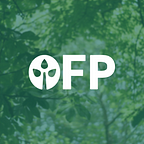Carbon Validation on OFP: Disrupting The Status Quo
In classic legacy carbon verification systems, the review and affirmation or denial of carbon data has been an opaque process plagued by conflicts of interest within and out of the industry. Data from the natural world is both specific and precise, requiring thorough standards to properly validate it as ground-truth. The entities that have reviewed this data within the status quo processes of the carbon market over the past two decades have primarily been what are called Validation and Verification Bodies (VVBs). VVBs are licensed to operate by registries and subsequently open for hire by project developers, introducing a crucial conflict of interest.
OFP has embedded a validation system within the protocol as part of the measurement, reporting, and verification process that clears this hurdle to create fair, transparent, and high integrity carbon credits and data. Multiple third party validation bodies from around the world, over 30 now to be exact, simultaneously but independently review each data set uploaded to the protocol by project developers. Assigned randomly to different projects, there is no relationship or contact between projects and validators, removing any immediate conflict of interest. On OFP, validators receive rewards from a global verification pool based on a blockchain-innovated, token based system. There is no direct financial incentive from projects to validators but rather from participation in the ecosystem as whole.
Our array of Validation bodies each brings a unique skill set and specialty to the table, with focuses ranging from forestry expertise to remote sensing and AI. This approach substantially improves the chances of uncovering malfeasance.
Validation Process
Usually, validation processes often take months or even a year to complete, however the OFP validation process can be completed in about 40 days, with a 30 day review and voting period and a 7 day challenge period. All results are displayed on the blockchain based Atlas Explorer, where anyone and everyone is able to view the data uploaded, the validation results as well as how each of the validators has voted.
Every 6 months for the first 2 years of a project’s lifetime, data is re-measured and re-verified, continuing each year thereafter. This ensures transparency and traceability for an entire lifecycle. If a data upload is denied, the project is provided with feedback to improve future uploads. Projects get a maximum of 3 data denials before they are removed from the platform.
Carbon credits can only be as high quality and high value as the data that forms their essence. We are excited to bring thorough, fair, and open validation to carbon markets, solving many of the intrinsic problems with data validation. Now, projects of any size anywhere in the world have the opportunity to showcase their initiative as the most important communities on the front lines of the climate crisis.
OFP Reforestation Methodology: https://docsend.com/view/vk4igutcj2ygscww
Explore more about OFP Validation: https://www.openforestprotocol.org/validator
Get in touch: rado@openforestprotocol.org
